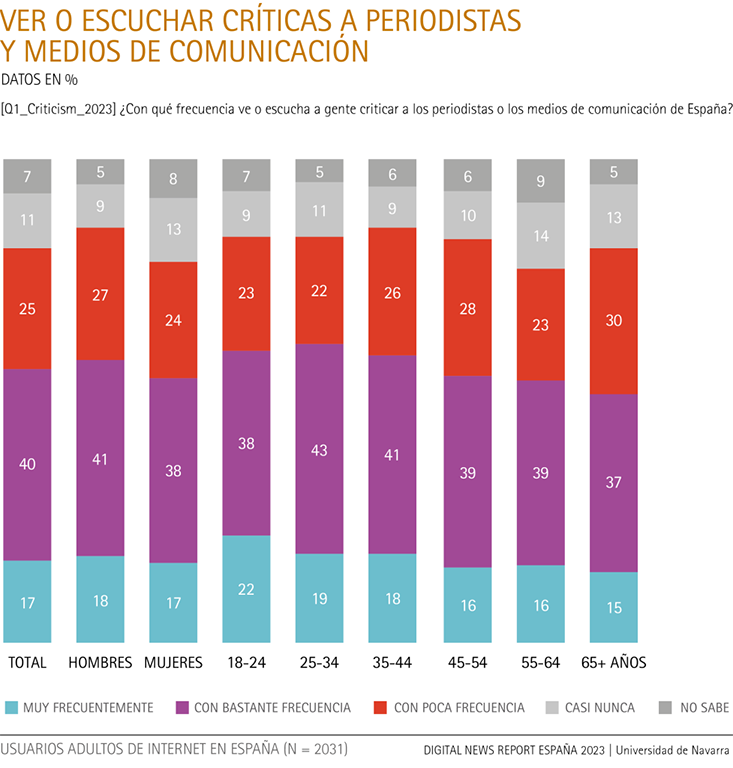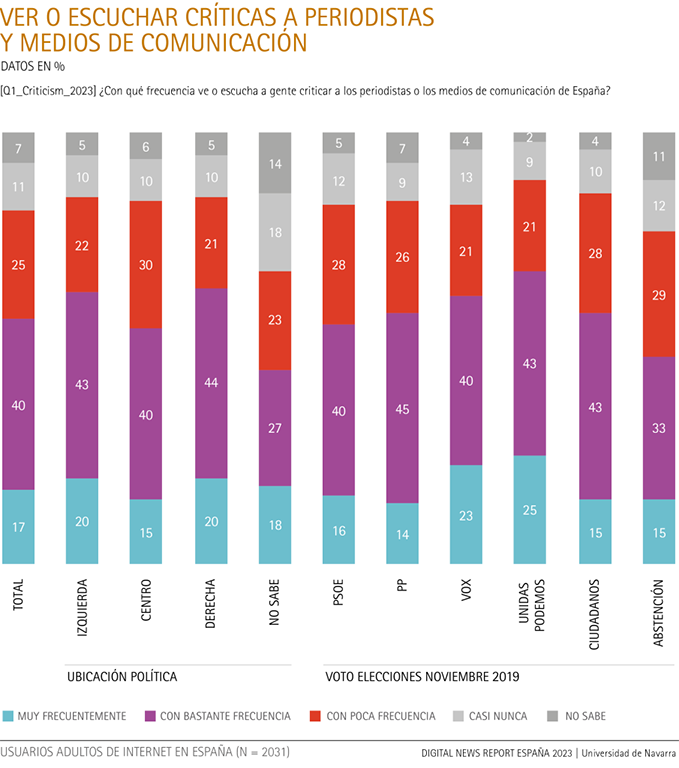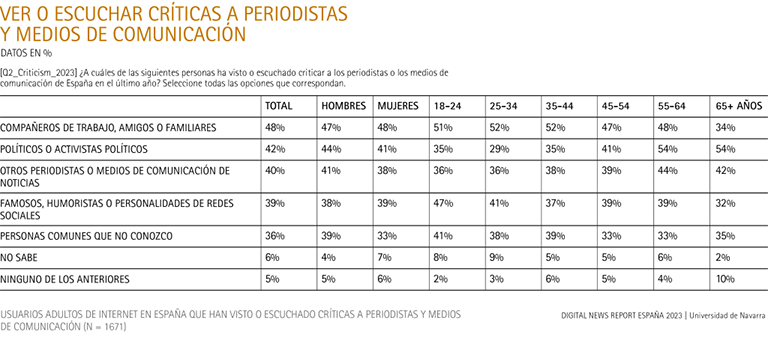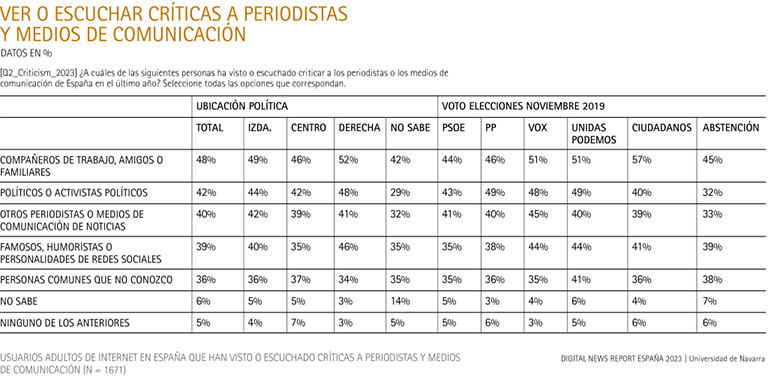Among the battery of new questions included in the latest edition of the DNR is also one related to the exhibition that Spanish Internet users have to criticize journalism. For the first time, respondents have to answer how often they see or hear people criticizing journalists or the media in Spain. The possible answers range from "very frequently", through "quite frequently" and "infrequently" to "almost never" and "I don't know". Of these five options, 40% of Spanish Internet users say that they are exposed to criticism of journalists or the media quite frequently. If to this option is added "very frequently" then criticism rises to 57%, which indicates that the journalistic profession is in question.

In terms of age groups, there are some significant differences. Twenty-two percent of adults under the age of 24 say they are very frequently exposed to criticism of journalism, some seven percentage points more than those aged 65 and older.

In terms of political location, one in five people on the left and on the right say they very frequently see or hear criticism of journalists or the media. In contrast, among people in the center this percentage is reduced by 5 percentage points (15%). Therefore, it could be deduced that the political extremes are more exposed to criticism. This assumption is reaffirmed when analyzing the vote in the November 2019 elections. 25% of the voters of Unidas Podemos followed by 23% of Vox are very often confronted with criticism of the journalistic sector. If we also add to these figures the option of "quite often" the voters of Unidas Podemos add up to 68% and those of Vox to 63%.

When analyzing where these criticisms of journalists or the media come from, it can be seen that the largest source of criticism comes from the close circle. It is the colleagues of work, friends or relatives who account for almost half of the criticisms with 48%. This is closely followed by politicians (42%), other journalists or media (40%) and celebrities, humorists or social network personalities. It is striking that 40% of the criticisms come from colleagues or professional media.
There are no significant differences between men and women, but there are differences by age group. While more than half of adults under 34 years of age hear regular criticism of journalism in their close social circle, in those over 65 years of age this figure leave stands at 34%. On the other hand, if we look at criticism from politicians or political activists, the data are reversed. The main source of criticism of journalism for those over 65 years of age comes from politicians (54%), a figure that among younger people stands at 35%.

It has been previously commented that the voters of Unidas Podemos and Vox coexist with a greater criticism of the journalistic industry. What is interesting now is to analyze the origin of these criticisms. For the voters of both parties, the greatest source criticism of journalists and the media comes from their close circle with 51%. In this sense, the figure for Ciudadanos voters, whose figure rises to 57 percentage points, is very striking. The second source of criticism with 48% for Vox and 49% for Unidas Podemos comes from the political sphere. Also surprising here is the 49% of PP voters. In this sense, it could be argued that the politicians of these parties have a more critical approach with the role of the media.